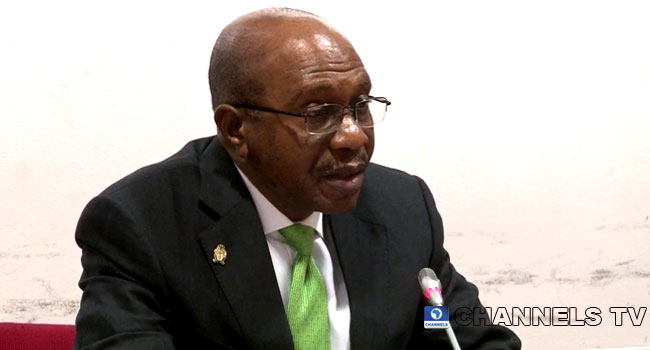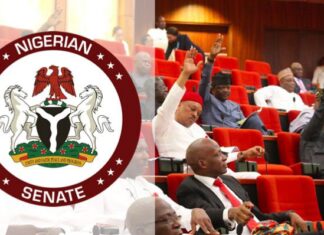By Ishaya Ibrahim
On May 21, Nigeria’s Central Bank retained the country’s benchmark interest rate at 13.5 per cent for the second consecutive time, a two-pronged strategy of mitigating inflation rise and stimulating growth.
The CBN Governor, Godwin Emefiele briefed the media on why the country’s apex bank took the decision.
April inflation had risen by 12 basis points, reaching 11.37 per cent. It was 11.25 per cent in March.

The CBN’s historical reaction to inflation had always been to hike interest rate. This time around, the CBN’s change of tactics was based on the fact that first quarter 2019 Gross Domestic Product (GDP) decreased by 37 basis points on a quarter-to-quarter basis.
From 2.38 per cent in the fourth quarter of 2018, it decreased to 2.01 per cent in the first quarter of 2019.
Banks are already charging outrageous interest on loans. Any increase in the interest rate would have further worsened the fragile state of the economy.
Erudite Economist Henry Boyo said the policy of the Central Bank on monetary issues is a drawback to the country’s economic growth.
“We have for over three decades put the gear of the economy of Nigeria in reverse. That is why we have never seen any uptake in areas of inclusive economic growth, and it doesn’t matter if additional income comes into government coffers.
“If the government or the CBN is interested in bringing down the cost of funds, then they must bring down inflation. If you bring down inflation, the cost of funds will come down naturally. But then we have a situation where because of inflation, the Central bank itself gets into the market by borrowing money in the market out of the system so that the intensity of the pull of inflation will be reduced.
“They take the money out of the system to reduce the too much money that drives inflation. You now have a situation where the real sector, the manufacturers and business people are now looking for cheap money. Do you think the banks will lend to the real sector when the government is willing to pay 15 to 18 per cent to borrow from them? And which is safer? Lend to a businessman at 20 per cent or to the government at 15 per cent? What kind of business will you be doing to make a success to repay the loan?
“If you look at it historically, you will find that there is no time the lives of people living in Nigeria have been better in the last 30 years. It has been a sliding gradient. Why? We are taking our eyes off the engine of growth. That is, keep inflation at a low rate so consumer demand can be converged, so that cost of borrowing can also be reduced, so that there will be more intense in terms of people wanting to consume and produce something. That is how the economy grows. But if on the other hand, inflation is already killing everybody, cost of funds is already so high, you can only have one direction, and that is, keep going backwards,” he said.











